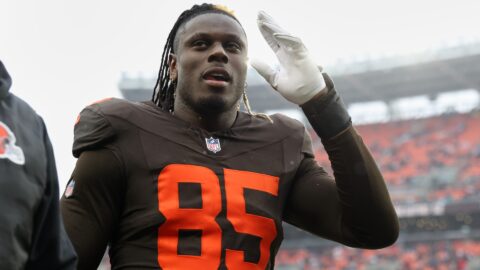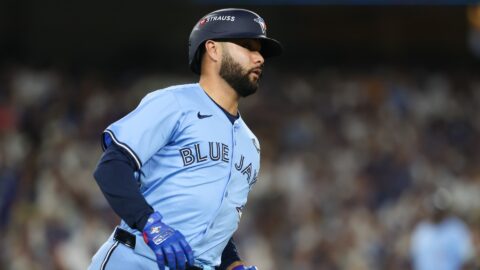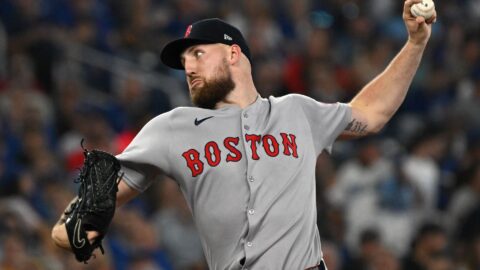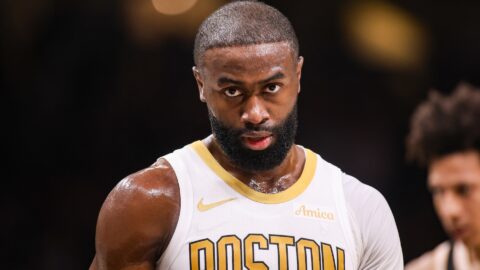The Home Run Derby is more than a month away, and yet news surrounding it is still making waves. Unfortunately for Major League Baseball, it's not about who will be there, following the recent naming of Matt Kemp and Robinson Cano as captains for the National League and American League squads, respectively.
It's about who won't be.
Coming on the heels of David Ortiz' comments to WEEI last week, Rangers slugger Josh Hamilton told USA Today on Tuesday that he too will skip the Derby.
The loss of not only Ortiz, who has made five appearances since 2004 and won in 2010, but also Hamilton — who leads the majors in home runs, is widely followed for his compelling backstory and put on a legendary show at the 2008 Derby in Yankee Stadium — is crushing. But it's also indicative of a wider problem with the Derby, one that threatens to ruin it for players and fans alike.
The problem, of course, is that it's becoming increasingly harder and harder to get big-name stars to agree to participate.
And why would they want to? As the data shows, it's not uncommon for a hitter's stats to decline after participating in the Derby, presumably because they tinkered with their swing in order to perform better in the Derby. Not to mention the inherent injury risk that comes with repeatedly swinging for the fences like a slow-pitch softball player.
So it's no wonder that stars such as Ortiz and Hamilton choose to sit it out — and this is how fans end up watching players like Brandon Inge in the Home Run Derby, as they did in 2009. To be fair, Inge was tied for fourth in the AL at the time with 21 bombs, but come on. Who really wants to watch Brandon Inge in the Home Run Derby? Inge did nothing to help his case, hitting exactly zero balls over the fence.
Fans don't watch the Derby to see balls barely clear the fence off the bats of players to whom they've likely been just introduced. They watch to see balls launched to the limits of their imagination and beyond by their favorite superstars.
Within the last two years alone, fans have had to watch Rickie Weeks, Vernon Wells and Chris Young combine to hit a sterling six home runs. Six! In the second round of the '08 Derby, Hamilton hit four and quit with six outs left.
While Weeks, Wells and Young were simultaneously struggling and being introduced to most of America, Ryan Howard, Vladimir Guerrero and Albert Pujols were simply watching. All three had hit more home runs at those respective times. All three had more name recognition. All three could hit the ball farther. Two of them had even already won the Derby once. But were they participating? No. Was this surprising? Again, no. Granted, Howard and Pujols had each appeared three times already — but it's the principle of the thing more so than the specific players sitting a particular Derby out.
So here's a radical idea — after this year, Major League Baseball should swallow its pride and just do away with the entire event. One of these days, someone will get hurt participating in the Derby, slapping the event with a black mark that that will not easily go away. Either that, or so many big-name players will elect to sit out that those in charge will be forced to pick from the lineups of the Twins and Padres (Combined number of team home runs this year: 72). And though fans may watch while the Derby still has brand appeal, what happens in any market economy will eventually happen to the Derby too — they will ignore a bad product.
But what to do in its place? MLB still needs a marquee event for All-Star Monday, and fun as it may be, the celebrity softball game just doesn't cut it. So here's an equally radical idea. The term "five-tool player" is tossed around a ton in baseball circles — why not make an event out of it?
For each "tool," there could be a corresponding event. A mini-home run derby of five outs for hitting for power. Ten pitches of live batting practice for hitting for average. A three-heat sprint to first base for running. A three-throw accuracy competition from the outfield for throwing. A timed nine-chance fielding competition — one each from each position — for fielding.
There could be three players selected for each event — preferably those that are well-suited for each particular one — and then the respective winners would face off in all five to decide who among them posseses the best blend of the five tools. The winner could receive the Willie Mays Outstanding Five-Tool Player Award, or some such trophy.
The event would provide compelling storylines, entertainment value (who wouldn't want to see Jose Reyes try to match Adam Dunn's power? Or conversely, Dunn try to match Reyes' speed?) and a Home Run Derby-sized chunk of time for programming considerations. Because of the decreased length of each event, there would be less risk of injury and less need for mechanical tinkering — and hopefully because of that, more stars willing to participate.
Time will tell if Bud Selig is daring enough to implement such a radical departure from baseball's current tradition. But if things keep going the way they appear to be, he may not have another choice.



